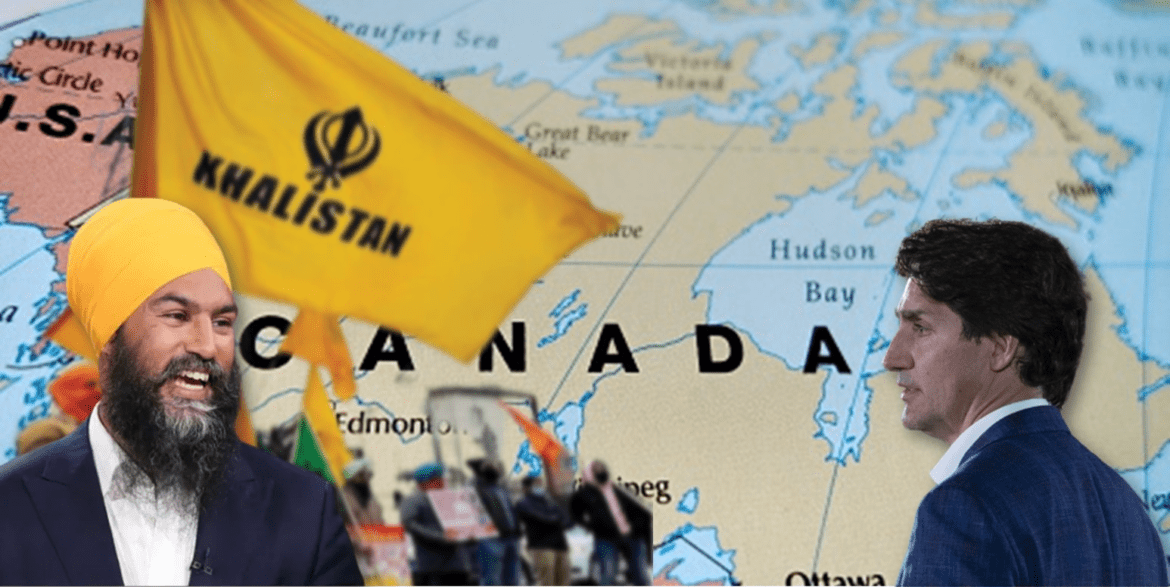AI Generated Summary
- The silence of the mainstream media on sensitive issues like Sikh Khalistani terrorism is a disservice to the public.
- “You can go on and on inventing stuff, but when someone blows up an airplane, engages in separatist activity, and threatens the leader of India—you don’t want to say anything.
- The mainstream media’s failure to report on such paradoxes deprives the public of a nuanced understanding of the situation.
In a recent interview, Dr. Paul Bullen, a prominent expert in political science, religion, and critical thinking, made a striking observation: “Can you imagine the mainstream media — funded by the government engaging in a critique of Sikhism? It’s not even something they’re allowed to think about.” This statement sheds light on a significant issue plaguing the mainstream media today: its selective coverage and the avoidance of controversial or sensitive topics.
The mainstream media’s reluctance to tackle certain subjects is particularly evident in the context of Sikh Khalistani terrorism. Despite its relevance and the potential threat it poses, mainstream media outlets consistently shy away from providing a thorough and balanced analysis. Dr. Bullen’s commentary brings to the forefront a critical question: why is there such a conspicuous silence on this matter?
Dr. Paul Bullen, PhD:
— Mocha Bezirgan 🇨🇦 (@BezirganMocha) May 26, 2024
“Can you imagine the mainstream media — funded by the government engaging in a critique of Sikhism? It’s not even something they’re allowed to think about.”
Dr. Paul Bullen, an expert on political science, religion, and critical thinking, highlights the… pic.twitter.com/iLhUFSbGeS
Consider the coverage of Khalistan protests in Canada, where demonstrators often brandish swords and spears, leading to violent clashes with police. These events are not only newsworthy but also alarming, yet they fail to receive the attention they deserve from traditional media. Contrarily, independent coverage of these protests garners millions of views, underscoring a significant gap in mainstream reporting. The absence of mainstream media is even more perplexing given the participation of politicians and police in parades that glorify individuals identified as terrorist killers.
This pattern of avoidance suggests a deeper issue within the media landscape. When government funding or political correctness dictates editorial choices, the result is a sanitized version of reality that omits critical discussions. This not only undermines the media’s role as a watchdog but also leaves the public uninformed about significant threats and issues.
“You can go on and on inventing stuff, but when someone blows up an airplane, engages in separatist activity, and threatens the leader of India—you don’t want to say anything. Talk about hypocrisy and double standards,” said Dr. Bullen.
Dr. Paul Bullen, PhD
The glorification of terrorists in these parades is a case in point. It raises important questions about the values and priorities of the institutions involved. When politicians and police partake in these events, it sends a mixed message about the stance on terrorism and public safety. The mainstream media’s failure to report on such paradoxes deprives the public of a nuanced understanding of the situation.
Furthermore, the reluctance to critique certain religious or ethnic groups, such as the Sikh community in this instance, reflects a broader trend of political correctness that hinders honest discourse. It is crucial to distinguish between critiquing extremist factions within a community and condemning the community as a whole. The fear of backlash or accusations of bigotry should not stifle necessary debates about security and extremism.
The role of the media is to inform, educate, and provoke thought. By shying away from controversial topics, the mainstream media fails to fulfill this mandate. Instead, it falls upon independent journalists and alternative media outlets to cover these stories, often without the same reach or resources. This shift not only fragments the information landscape but also diminishes the trust and authority traditionally vested in mainstream media.
Dr. Bullen’s insights call for a reevaluation of the mainstream media’s priorities and practices. It is imperative for these institutions to reclaim their role as impartial informers of the public, willing to tackle even the most contentious issues. Only then can they hope to restore their credibility and fulfill their essential function in a democratic society.
The silence of the mainstream media on sensitive issues like Sikh Khalistani terrorism is a disservice to the public. It highlights a need for more courageous and comprehensive reporting. As consumers of news, we must demand better, seeking out diverse sources and encouraging a media landscape that does not shy away from the truth, no matter how uncomfortable it may be.
The opinions expressed in this article are those of the author. They do not purport to reflect the opinions or views of Khalsa Vox or its members.




